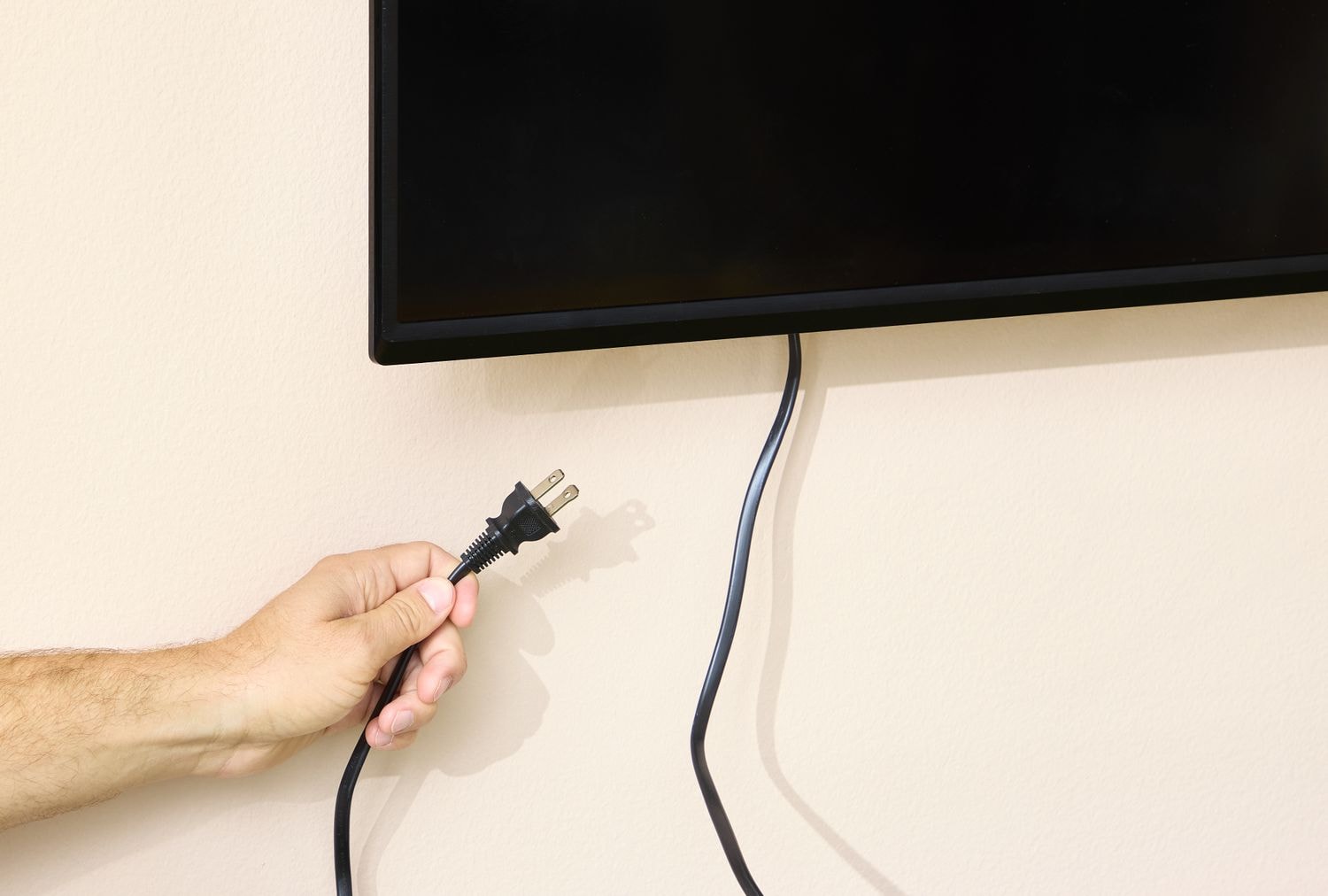Should you unplug your TV when not in use?
Should you unplug your TV when not in use? Leaving your TV plugged in all the time, even when not in use, may seem harmless, but it is risky and wastes energy. So should you unplug your TV when not in use?
Many people believe that leaving the TV plugged in all the time, even when not in use, can pose a fire risk or cause high electricity bills due to hidden power consumption.

This view is not entirely wrong, but it is not necessarily correct in all cases. So is it really necessary to unplug the TV when not in use? Or is it just an old habit that no longer fits with today's modern devices?
When should I plug in my TV?
Before you consider unplugging your TV every time you're not using it, you need to know that there are situations where it's better to leave the device in standby mode, which is not only convenient but also necessary for the stable operation and longevity of the TV.
For OLED TVs: Plug in to maintain the screen
If you own an OLED TV, it's a good idea to leave it plugged in. OLED TVs are designed to perform automatic maintenance cycles while in standby mode.
This is a critical process that calibrates pixel brightness and prevents image retention. Sudden or frequent power interruptions can prevent this process from completing, resulting in image retention, uneven brightness, or even permanent screen damage.
Quick access and software updates
Many smart TVs today need to stay connected to perform background tasks, such as downloading firmware updates, syncing apps, or preloading content from streaming services.
Keeping your TV plugged in not only keeps it ready to go almost instantly, it also ensures you always have the latest features, timely security patches, and a smoother user experience.
Thus, in some cases, leaving the TV plugged in is not only a matter of convenience but also an important factor in helping the device operate more efficiently and durably.
When should you unplug your TV?
Leaving your TV plugged into a power outlet isn’t always a wise choice. Here are some typical scenarios where “isolating” your TV from the power source can save money and protect your device from unexpected risks.
TV only works sometimes
If you only use your TV on special occasions, such as watching a football final or watching a movie on the weekend, then leaving it plugged in 24/7 is unnecessary and wasteful.
In standby mode, the TV still consumes a small amount of electricity, but if added up over the year, the number is still quite large. Therefore, to save money and avoid waste, you should unplug TVs that are rarely used.
Before and during a thunderstorm
With thunderstorms carrying severe lightning, power line surge protectors cannot fully protect your TV, in some cases lightning can damage the circuit board.
The safest way to be safe is to unplug both the TV and the surge protector when the rain starts to get heavy. Also, surge protectors have a limited “life” (usually 3–5 years), so if it’s been a while since you replaced them, consider getting a new one to keep your protection in tip-top shape.
When you are away from home for a long time
When you go on a business trip, a long vacation, or go home for the holidays, unplug your TV and all your entertainment devices. Not only will you avoid an “invisible” electricity bill, but you will also reduce the risk of electrical short circuits and fires when left unattended.
In short, for most users, keeping your TV connected to a power source is still a reasonable choice, as long as you apply an additional layer of technological “defense”. Combining a smart plug with a standard surge protector will help protect the device from power surges, while also allowing you to schedule power cuts or standby mode when not in use to reduce wasted electricity.





